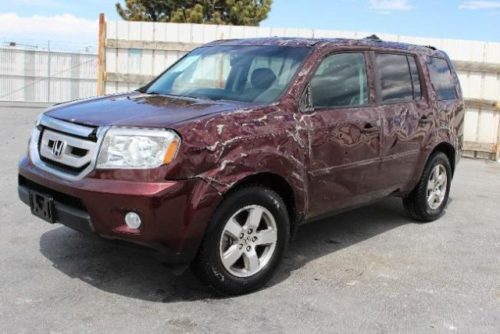Faulty Honda Fuel Tanks Lead to Recall
Honda issued a recall on 136 Honda Pilots built last year after the discovery of potentially leaky fuel tanks.
American Honda Motor Company sent the National Highway Traffic Safety Association (NHTSA) a safety recall report on March 30, 2017. The recall covers 160 model year 2016 Honda Pilots built between Jan. 6 and Jan. 7, 2016. The recall covers both the two-wheel-drive and all-wheel-drive variants of the 2016 Honda Pilot.
Think you have a lemon, click here to fill out a 60 second form.
Honda said in the report they received the first warranty claim for a leaking fuel tank on May 7, 2016. The company reported after a seven-month investigation that the component supplier, Yachiyo Manufacturing of America, provided faulty fuel tanks.
The company said vibration and heat cycling can cause separation within the fuel tank walls, potentially causing fuel leaks and increasing fire risk.
Honda’s report said Yachiyo attributed the problems to errors in machine operation and programming led to them manufacturing fuel tanks with incorrect material. Honda said “countermeasures were implemented to prevent incorrect material usage in the future.”
According to the safety report, Honda and Yachiyo spent three months investigating precisely how many vehicles fell victim to the defect. Honda determined on March 23, 2017 to conduct a safety recall. The company said they have received one warranty claim related to the issue, and are aware of no injuries or fire losses.
Honda will notify owners, and dealers will replace the fuel tank, free of charge. The recall is expected to begin April 24, 2017. Owners may contact Honda customer service at 1-888-234-2138. Honda’s number for this recall is KE8. Concerned Honda consumers can also visit the NHTSA’s website, and enter their VIN to see if their vehicle is included in any recalls.
The manufacturer of your vehicle is legally required to fix any recalled problems for free. If the dealership refuses to fix the part or tries to charge you for the repair, contact the manufacturer immediately. The Highway Safety Act of 1970, which created the NHTSA, requires car manufacturers to pay for the recall and replacement of a defective part.
If the manufacturer fails to repair, replace, repurchase, or provide the loss value of your recalled vehicle, they are violating the warranty and a lawyer may be able to help you. Lemon law attorneys help their clients by dealing directly with the manufacturer on the clients’ behalf, working to promptly resolve the issue and get their clients back on the road. Thanks to the Magnuson-Moss Warranty Act, attorneys can seek their fees directly from the manufacturer, meaning a client can obtain legal counsel without having to pay attorneys’ fees directly out of pocket.

